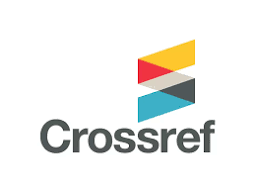Effect of Losartan on Oxidative Stress and Lipid Profile in Patients with Essential Hypertension
Keywords:
Hypertension, losartan, oxidative stress, lipid profileAbstract
Background: Biomarkers measured for systemic oxidative stress are elevated in hypertension (HTN). Many antihypertensive drugs reduces oxidative stress along with normalization of blood pressure. The present study aimed to determine the effect of losartan on oxidative stress and lipid profile in patients with essential hypertension.
Materials & Methods: This prospective cohort study enrolled 200 essential hypertensive treatment naïve patients. After proper consent, lorsartan 50mg was prescribe once daily to all patient. 5cc blood was extracted and divided into 2 portions in EDTA and gel tube. The lipid profile and anti-inflammatory markers including ceruloplasmin assay, total antioxidant status (TAS) and malondialdehyde (MDA) assay, glucose assay, albumin assay, urea and creatinine assay were evaluated using commercially available kits. All the patients were followed for a period of 30 days and after follow-up all the patients were re-examined, the blood pressures were recorded and all the investigation markers were repeated. The data was analyzed using SPSS version 22.0.
Results: In total 200 patients, 10 were lost during follow-up. In 190 hypertensive patients, 100 (52.6%) were males while 90 (47.4%) were females. The mean age was 45.35 ± 0.96 years. Statistical significant differences were observed in lipid profile markers including total cholesterol, triglycerides, LDL and VLDL with p-values <0.001. Similarly, statistical significant differences were observed in oxidative stress markers including MDA levels, TAS levels and ceruloplasmin levels with p-values <0.001. No statistical differences were observed in BMI and HDL values with p-values >0.05.
Conclusion: Despite good anti-hypertensive effect of losartan, this drug is also effective in reducing oxidative stress and lipid profile thus helpful in reducing complications related to hypertension
Downloads
Published
Issue
Section
License
Copyright (c) 2023 Tariq Mahfooz Khawaja; Syed Hasnain Ali Shah, Zakia Subhan, Irum Mehmood, Mudasir Ahmad Khan, Muhammad Abid Shah

This work is licensed under a Creative Commons Attribution-NonCommercial 4.0 International License.
Readers may “Share-copy and redistribute the material in any medium or format” and “Adapt-remix, transform, and build upon the material”. The readers must give appropriate credit to the source of the material and indicate if changes were made to the material. Readers may not use the material for commercial purpose. The readers may not apply legal terms or technological measures that legally restrict others from doing anything the license permits.


